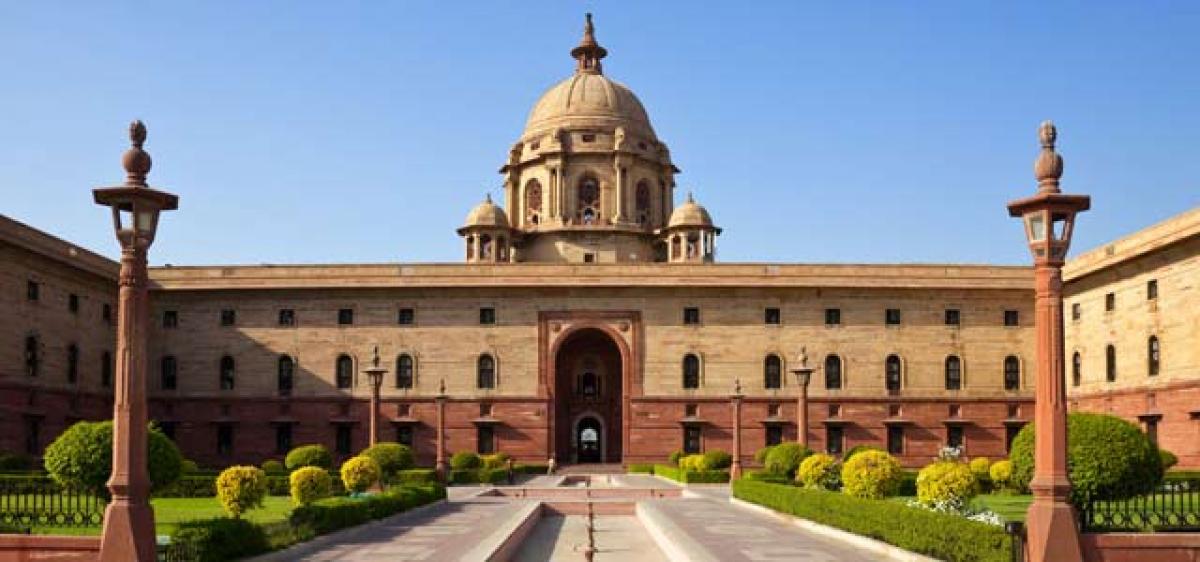Live
- SC agrees to hear plea related to Delhi pollution
- Srikakulam: Cooperative Week celebrations take off
- National Library Week celebrations begin
- Bringing joy to MPP schoolchildren
- Contaminated food worth Rs 52,000 disposed
- BJP MLA warns of protest over Panchamasali reservation demand
- Sunspots and solar flares can affect Earth’s surface
- Discom staff neglect jungle clearance at poles
- Experts at COP29 urge India to tackle short-lived climate pollutants
- AGP inducts new locomotive
Just In

The government, while moving the ordinance to amend Section 6 of the Payment of Wages Act, 1936, clarified that the option of cash payment of wages would continue to exist.
The Union Cabinet on December 21 passed an ordinance to facilitate digital transfer of salaries by employers across the country.
The government, while moving the ordinance to amend Section 6 of the Payment of Wages Act, 1936, clarified that the option of cash payment of wages would continue to exist.
Article 123 mentions the power of President to promulgate Ordinances during the recess of Parliament:
(1) If at any time, except when both Houses of Parliament are in session, the President is satisfied that circumstances exist which render it necessary for him to take immediate action, he may promulgate such Ordinance as the circumstances appear to him to require;
(2) An Ordinance promulgated under this article shall have the same force and effect as an Act of Parliament, but every such Ordinance:
(a) shall be laid before both House of Parliament and shall cease to operate at the expiration of six weeks from the reassemble of Parliament, or, if before the expiration of that period resolutions disapproving it are passed by both Houses, upon the passing of the second of those resolutions; and
(b) may be withdrawn at any time by the President Explanation Where the Houses of Parliament are summoned to reassemble on different dates, the period of six weeks shall be reckoned from the later of those dates for the purposes of this clause.
(3) If and so far as an Ordinance under this article makes any provision which Parliament would not under this Constitution be competent to enact, it shall be void.
The President acts on the advice of the Council of Ministers, so it is the government that takes the decision to issue an ordinance. After the Cabinet decides to issue an ordinance, it is sent to the President.
The President may return the ordinance once if he feels that it requires reconsideration but has to promulgate it if it is sent back to him after reconsideration.
The President may withdraw an ordinance at any time. An ordinance may have retrospective effect and may be modify repeal any act of Parliament or even another ordinance.
It may also amend or alter a tax law but never can be used to amend the Constitution. This unusual power has been given to the President, so that the Executive can deal with a situation of urgency.

© 2024 Hyderabad Media House Limited/The Hans India. All rights reserved. Powered by hocalwire.com







